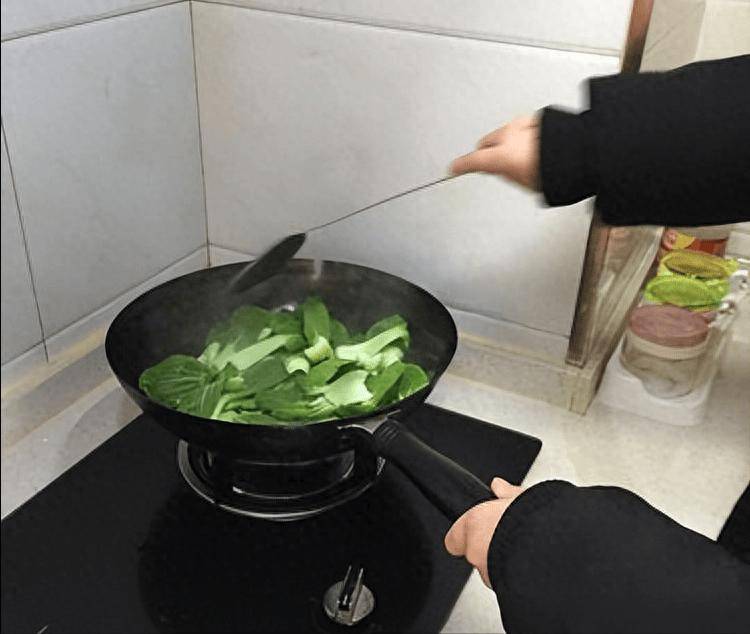Introduction
Dear readers, WeChat is about to be revised. In the future, only starred users can receive daily article push notifications. Please click on the card below as soon as possible, first follow, and then add a star ⭐.
Have you ever wondered why doctors recommend changing dietary habits for people over 65?
What makes some seemingly ordinary home-cooked dishes become a hidden health “killer” for the elderly? To help everyone better understand, I will combine a real case to explain.
Zhou Cong is an employee at a courier station, his daily job is to sort and send packages, leading a regular and monotonous life. Although he is 65 years old, he still maintains the habit he developed when he was young – practicing tai chi in the park every morning.
Before the sun was completely up, the elderly in the park had already started their morning exercises. Zhou Cong changed his shoes next to a group of chatting elderly people and overheard their conversation.
“I heard that once you’re over 65, we should eat more steamed bread and pickles, and eat less greasy food, especially those three in home-cooked dishes.”
An elderly man with white hair said, arousing Zhou Cong’s curiosity.
He wondered, exactly which three home-cooked dishes are they referring to? Does he also often eat them at home? This question lingered in his mind, making him a bit distracted during his tai chi practice that day.
After practicing tai chi, Zhou Cong went to the hospital to get his regular high blood pressure medication. While waiting, he thought about the morning’s topic and decided to find a doctor to clarify. Luckily, his old friend and senior internist, Doctor Gu, happened to be at the hospital.
“Dr. Gu, this morning I heard someone say that after 65, three common home-cooked dishes are best avoided. Is that true?” Zhou Cong asked. Dr. Gu smiled slightly, signaled him to sit down, and began to explain slowly.
“There is some truth to that, indeed there are three dishes that may not be very suitable for the elderly. Firstly, braised pork with heavy oil and salt. Although delicious, it is detrimental to the cardiovascular system, especially for the elderly with high blood pressure and high cholesterol. Excessive fat can strain the heart and is not beneficial to health.”
As Dr. Gu spoke, he took out a datasheet detailing the incidence of cardiovascular diseases caused by improper diet in different age groups.
“The second to be eaten less is sweet and sour spare ribs. Although tangy and delicious, it has a very high sugar content, and elderly people usually have lower pancreatic function than young people, increasing the risk of diabetes with excessive sugar intake.”
“Stir-fried green beans require a lot of oil for cooking, and during the cooking process, green beans themselves are prone to produce acrylamide, a substance that poses potential harm to the kidneys. Especially for the protection of the kidney function of the elderly, it is best to avoid it as much as possible.”
Zhou Cong thought to himself that he must go back and inform his wife to make some adjustments to the menu in the future. Seeing Zhou Cong’s seriousness, Dr. Gu supplemented with some dietary precautions in addition to avoiding these three dishes, emphasizing that a balanced diet is crucial.
That day, Zhou Cong felt unusually relaxed on his way home. Not only did he learn new knowledge, but he also decided to change his dietary habits starting from that day to add more health security to his later years. And all of this would start with reducing braised pork, sweet and sour spare ribs, and stir-fried green beans.
After explaining to Zhou Cong in detail about the hazards of braised pork, sweet and sour spare ribs, and stir-fried green beans, Dr. Gu, seeing Zhou Cong getting ready to leave, suddenly remembered an important point – a recently researched health view that is less known to many people.
“Mr. Zhou, hold on a moment,” Dr. Gu stopped Zhou Cong as he was about to leave the consultation room, then continued, “We have talked a lot about foods to avoid, but there is a health secret that you might not have thought of, which I think is particularly suitable for you.”
Curious, Zhou Cong turned back and sat down again. “Oh? What’s the secret?” he asked.
Dr. Gu smiled and said, “The secret is to eat a certain food that most of us eat every day without paying special attention to its health benefits – sweet potatoes. But I’m going to tell you not only about its common benefits, but also about a special effect that very few people know about.”
“Sweet potatoes, especially their skin, are rich in dietary fiber and antioxidants, which can help regulate blood sugar and reduce the risk of cardiovascular diseases. This may be known by many. However, a special component in the skin of sweet potatoes can significantly improve the composition of gut microbes, thereby enhancing the immune function of the elderly,” explained Dr. Gu.
Listening intently, Zhou Cong’s eyes lit up, “Should I start eating more sweet potatoes?” he half-jokingly asked.
“Indeed you should,” Dr. Gu replied seriously. “However, the key is to cook or bake them with the skin, as most of the nutrients are concentrated in the skin. Of course, the premise is to thoroughly clean the sweet potatoes.”
They continued their conversation, and Dr. Gu reminded Zhou Cong again that while changing diet is a good thing, the most crucial aspect is to maintain overall nutritional balance, especially at his age.
Zhou Cong took note of these suggestions, thanked Dr. Gu for his patient answers, and went home with a wealth of information. He decided to start trying these new dietary recommendations from the next day, hoping to elevate his health to a new level.


